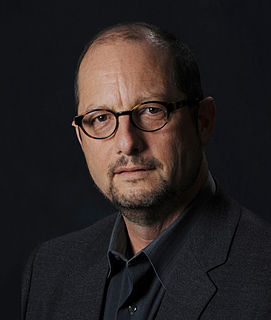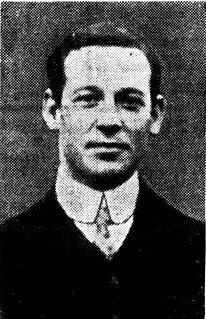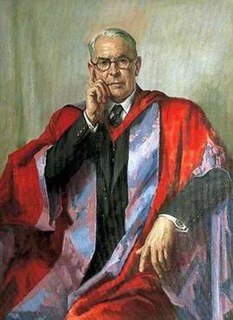
Ormond College is the largest of the residential colleges of the University of Melbourne located in the city of Melbourne, Victoria, Australia. It is home to around 350 undergraduates, 90 graduates and 35 professorial and academic residents.

Géza Vermes, was a British academic, Bible scholar, and Judaist of Hungarian Jewish origin—one who also served as a Catholic priest in his youth—and writer on history of religion, particularly Judaism and early Christianity. He wrote about the Dead Sea Scrolls and ancient works in Aramaic such as the Targumim, and on the life and religion of Jesus. He was one of the most important voices in contemporary Jesus research, and he has been described as the greatest Jesus scholar of his time. Vermes' written work on Jesus focuses principally on Jesus the Jew, as seen in the broader context of the narrative scope of Jewish history and theology, while questioning and challenging the basis of the Christian doctrine on Jesus.
Henry Kingsley Archdall was an Australian academic and clergyman. After teaching at Cambridge University, in Australia and in New Zealand, he became Principal of St David's College, Lampeter and Chancellor of St David's Cathedral, then headmaster of King's College, Auckland.

Bart Denton Ehrman is an American New Testament scholar focusing on textual criticism of the New Testament, the historical Jesus, the origins and development of early Christianity. He has written and edited 30 books, including three college textbooks. He has also authored six New York Times bestsellers. He is currently the James A. Gray Distinguished Professor of Religious Studies at the University of North Carolina at Chapel Hill.

Norman William Jolly was a first-class cricketer and forester. He was South Australia's first Rhodes Scholar.

Herbert Armitage James, CH was a Welsh cleric and headmaster of three leading public schools, who ended his "remarkable scholastic career", as it was later described by Austen Chamberlain, by becoming President of St John's College, Oxford. After an Oxford education and early teaching career at Marlborough College, he was headmaster of Rossall School from 1875 to 1886. It was said that he raised the school "to a pitch of all-round excellence which it had not known before". After suffering from health problems at Rossall, he served as Dean of St Asaph from 1886 to 1889. He returned to teaching in 1889, becoming headmaster of Cheltenham College and remaining in this post until 1895, despite being offered the position of headmaster of Clifton College. He then became headmaster of Rugby School and served there to great acclaim. His Rugby School nickname of "The Bodger" is still in use at the school. He left Rugby School in 1909 to become President of St John's College, Oxford, a position he held until his death 22 years later.
Edmund Salisbury Ffoulkes was a British clergyman who converted from Anglicanism to Catholicism and back again in the 19th century.
Sir John Seymour Blake-Reed OBE was a British judge who served in Colonial Egypt.
John Douglas Craig was a Scottish classicist, who was Firth Professor of Latin at the University of Sheffield from 1930 to 1952.
Harold Davies Littler was an Anglican priest and headmaster.
George Herbert Jose was a canon of St Peter's Cathedral, Adelaide, Australia, archdeacon of Mount Gambier and Dean of Adelaide.
Cecil James Mullo Weir was a Scottish academic and theologian, who was Professor of Hebrew and Semitic Languages at the University of Glasgow from 1937 until 1968.
Vincent Taylor FBA (1887–1968) was a Methodist biblical scholar and theologian. He was elected to the Fellowship of the British Academy (F.B.A.) in 1954, specializing in theology. During his career, he was both Principal of Wesley College, Headingley, Leeds and, from 1930–58, Ferens Professor of New Testament Language and Literature there. He was also Examiner in Biblical Theology, London University. He is described as "one of the outstanding New Testament scholars of his day and theologian of great renown and influence" with an "immense" literary output. According to the British Academy, his principal publications were Jesus and his sacrifice: a study of the Passion-sayings (1937), The atonement in New Testament teaching (1940) and The Gospel according to St Mark (1952).
Sir Thomas MacFarland (Tom) Cherry F.A.A., F.R.S. was an Australian mathematician, serving as Professor of Mathematics at the University of Melbourne from 1929 until his retirement in 1963.
Guthrie Edward Melville "Gus" Wilson MC was a New Zealand and Australian novelist and educator.

Sir Alan Aird Moncrieff was a British paediatrician and professor emeritus at University of London. He was most notable for developing the first premature-baby unit in 1947. It was Moncrief who recognised and developed the concept of daily parental visits to the ward, which he developed while at Great Ormond Street, well before the need for this became recognised, and with his ward sister, published an article on Hospital Visiting for Children in 1949.

Seymour Donald Mayneord Court, CBE, FRCSLT, FRCP, Hon FRCGP was a deeply religious British, paediatrician who was known for his achievements in the fields of respiratory disease and the epidemiology of disease in childhood. He was also known for working,in a primary role, that established the importance of research into the social and behavioural aspects of illness in childhood.








